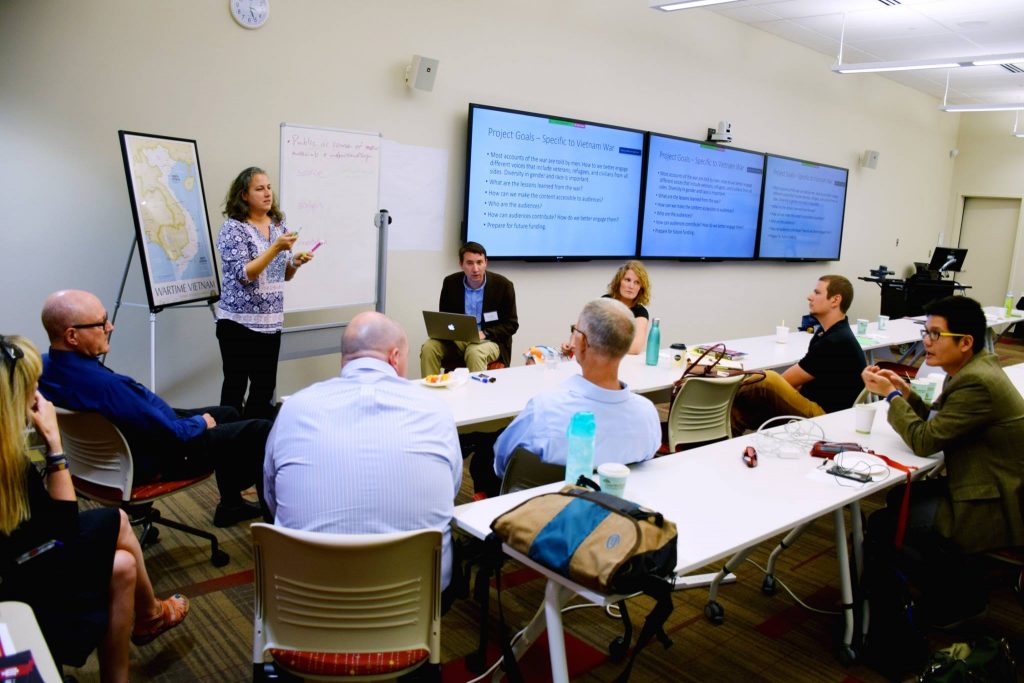
Dr. Luther gave an invited keynote presentation at Vietnam War / American War Stories: A Symposium on Conflict and Civic Engagement, hosted by the Institute for Digital Arts & Humanities at Indiana University-Bloomington. Other keynote speakers included included David Ferriero, the Archivist of the United States; and John Bodnar, Distinguished and Chancellor’s Professor of History at IU. Dr. Luther’s presentation was titled, “Rediscovering American War Experiences through Crowdsourcing and Computation,” and the abstract was as follows:
Stories of war are complex, varied, powerful, and fundamentally human. Thus, crowdsourcing can be a natural fit for deepening our understanding of war, both by scaling up research efforts and by providing compelling learning experiences. Yet, few crowdsourced history projects help the public to do more than read, collect, or transcribe primary sources. In this talk, I present three examples of augmenting crowdsourcing efforts with computational techniques to enable deeper public engagement and more advanced historical analysis around stories of war. In “Mapping the Fourth of July in the Civil War Era,” funded by the NHPRC, we explore how crowdsourcing and natural language processing (NLP) tools help participants learn historical thinking skills while connecting American Civil War-era documents to scholarly topics of interest. In “Civil War Photo Sleuth,” funded by the NSF, we combine crowdsourcing with face recognition technology to help participants rediscover the lost identities of photographs of American Civil War soldiers and sailors. And in “The American Soldier in World War II,” funded by the NEH, we bring together crowdsourcing, NLP, and visualization to help participants explore the attitudes of American GIs in their own words. Across all three projects, I discuss broader principles for designing tools, interfaces, and online communities to support more meaningful and valuable crowdsourced contributions to scholarship about war and conflict.